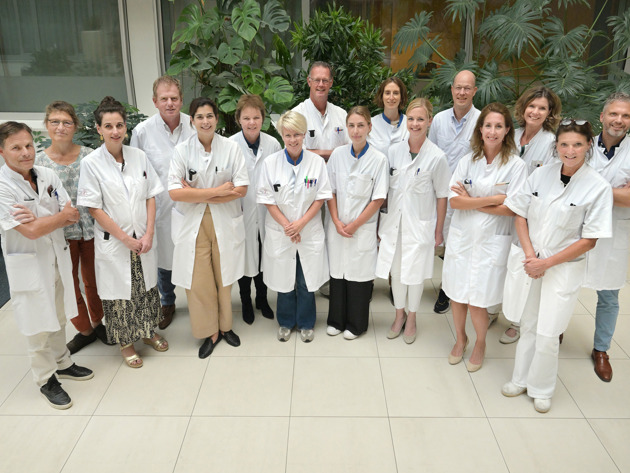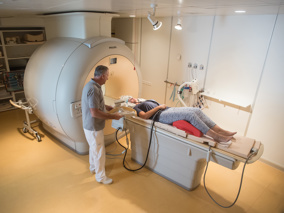Thymic cancer
Thymic cancer is cancer of the thymus. The thymus is a gland in the chest between the sternum and the trachea. Another word for thymus is thymus. Thymic cancer is rare and usually grows slowly. In the Netherlands, about 40 to 60 people are diagnosed with this disease every year. It is slightly more common in men than in women.
On this page you can read more about the symptoms, examinations and treatments for thymic cancer.
Learn more about thymic cancer
Causes of thymic cancer
The cause of thymic cancer is not known. We also do not know whether there are risk factors that increase the risk of thymic cancer. Thymic cancer is not hereditary.
Symptoms of thymic cancer
Often a tumor in the thymus is discovered by accident. Sometimes there are complaints, such as a feeling of pressure in the chest or coughing. Because a thymus tumor usually grows slowly, the symptoms often get worse slowly and stay for a long time.
In about 30% of people with thymic cancer, the first symptoms are muscle weakness during exertion or drooping eyelids during the day. These symptoms are part of a syndrome called Myasthenia Gravis. People with these complaints then come to the pulmonologist via the neurologist for further examination.
If the tumor continues to grow into the tissue around the thymus, other symptoms may appear, such as:
- Shortness of breath
- Upper respiratory tract infection
- Fatigue
- Weight loss
- Pneumonia
Symptoms that may indicate lung cancer are:
- a lot of mucus in the lungs
- dry irritating cough that lasts for weeks
- blood in coughed up mucus
- shortness of breath
- pneumonia that does not go away, not even with antibiotics
- hoarseness without a sore throat
- a swelling in the neck or face
- chest pain
- back pain or pain in the shoulders.
Types of thymic cancer
There are 3 types of tumors in thymic cancer:
- Thymomas: these are the most common. They usually grow slowly and almost never metastasize
- Thymic carcinomas: these usually grow faster than thymomas and often metastasize
- Thymic carcinoids: these also grow slowly
 nl
nl






